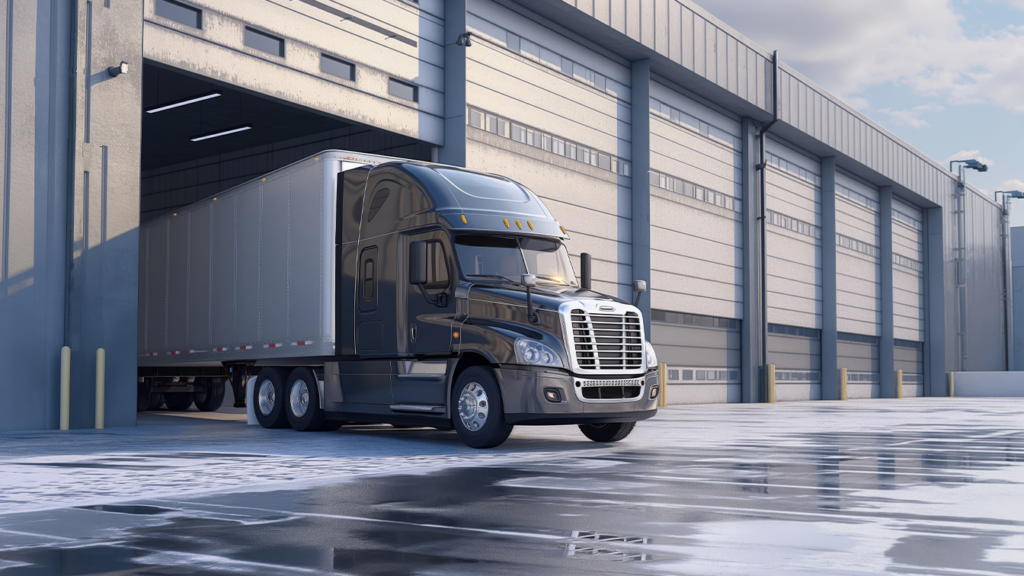Double brokering — the practice of a carrier re-brokering freight to another carrier — can be illegal, but that doesn’t stop companies from doing it. In fact, double brokering might even be on the rise. According to Transport Topics, instances of double brokering have skyrocketed since December.
A lack of regulatory oversight and continued supply chain disruption from the pandemic have made conditions ripe for fraudulent brokers to offer deceptively low rates on load boards, only to double broker the load and end up not paying the actual carrier. Keep reading to learn more about the risks double brokering can bring, as well as how to steer clear of the same pitfalls.
Five Ways Double Brokering Damages the Trucking Industry
Aside from legal ramifications, there are more dangers lurking behind double brokering. Here are some of the top risks that can wreck any small- to medium-size trucking fleet.
- Lack of transparency. If you’ve brokered a load to a carrier that is double brokering, you may not know where your cargo is or what its arrival time will be. With modern technology, many customers have “Amazon-ified” expectations of communication about their freight: they want to know exactly where it is and when it will arrive. That’s not always possible when a second broker takes over the goods.
- Higher chance of theft. Double brokering makes theft easier because the cargo is harder to track, and if you don’t know who has your freight, your customer might not get their delivery on time — or at all. In fact, with the lack of regulatory oversight and the prevalence of scammers, the trucking industry loses more than $100 million per year due to theft and damages from double brokering.
- Brand damage. If you lose freight because of double brokering, unhappy customers can leave negative reviews that will damage your PR for years. And with 1.2 million trucking companies in the United States, it’s easy for customers to dump you in favor of someone who can promise transparent freight communication and on-time deliveries.
- Inaccurate load board listings. In an effort to scam more people, companies that are double brokering will sometimes create a post for the same load on multiple lead boards. Small- to medium-sized trucking companies may unwittingly take some of the jobs. Later, they’re left outraged when they aren’t paid.If you were one of the companies who did the double brokering, the chances are increasingly high that whoever you hand your shipment off to never delivers it to the customer. This may get you kicked off of load boards and prevent you from doing business with other companies ever again.
- Payment issues. If you carry a shipment and find out your client was using you as a double broker, you’re in trouble. Double brokering frequently causes issues with payment between brokers and carriers. The original customer who owns the freight may be left in a losing situation where they were lured in by a suspiciously low rate, only to find the carrier wasn’t paid and the double brokers ended up with the whole paycheck.
What You Can Do to Avoid Double Brokering
One of the first things any carrier should do to avoid double brokering is verify load board listings. Some red flags may be that the offer is too good to be true — either offering an unusually low price or an unrealistically quick delivery time. Check other load boards to see if the same shipment is posted in other places at different rates. You can also check whether the shipment details are the same, such as the weight and delivery address.
Always work with trusted partners, even if that means doing a little research. Read reviews carefully to ensure you’re working with upstanding professionals. Using a vetted load board can help, and networking and building relationships with brokers can help you find other reliable resources.
Why All-in-One Fleet Management Platforms Help Mitigate Double Brokering
Double brokering thrives on blind spots—gaps in visibility, gaps in data, and gaps in accountability. Solera closes those gaps by unifying dispatch, telematics, compliance, and analytics in a single, secure ecosystem. When your Sylectus load‑board booking, Solera , SmartDrive video, and Spireon asset‑tracking sensors all land in one dashboard, it becomes nearly impossible for an unauthorized hand‑off to slip by unnoticed.
Real‑time GPS breadcrumbs, automated detention timestamps, and geofenced arrival alerts give operations teams and shippers the same clear line of sight to every load. If a trailer goes off‑route or a driver’s status doesn’t match movement, the platform raises an instant exception alert—no more waiting for a late‑night “Where’s my freight?” phone call to discover a problem.
Added Layer of Financial Protection
Solera’s platform also embeds an AI‑driven carrier‑risk engine that reviews authority status, insurance limits, safety scores, and historical rate patterns before a single mile is driven. When the system detects a potential double‑brokering profile—such as a brand‑new MC number offering a rate 30 percent under lane average—it flags the load for manual approval, stopping the scam long before freight is tendered.
Because every document—rate confirmations, certificates of insurance, PODs—lives in a digital vault with time‑stamped version control, accounting can reconcile invoices in minutes instead of chasing paper for weeks. That faster cash cycle protects smaller carriers from the liquidity crunch that double brokering so often causes.
Practical Next Steps for Fleet Managers
-
Bring‑Your‑Own‑Partner Policy: Use Sylectus to create a private carrier‑network list so dispatchers always start with pre‑qualified capacity before turning to the public board.
-
Mandate Mobile Check‑Calls: Require drivers to use the Solera Driver App; missing geofence pings are the earliest warning sign of an unauthorized hand‑off.
-
Run Weekly Authority Audits: Schedule an automatic cross‑check against FMCSA data so lapsed insurance or revoked operating authority never slips through the cracks.
-
Educate Your Team: Leverage Solera Academy micro‑courses to train dispatchers on recognizing forged documents and phishing attempts tied to double‑brokering schemes.
Why It Matters
Cargo theft, chargebacks, and FMCSA fines drain profit faster than high fuel prices or soft spot rates. By consolidating mission‑critical workflows into the Solera platform, fleets gain the operational resilience to keep loads honest and customers confident, even in a market where double brokering is on the rise.
How Solera Solutions Help Prevent Double Brokering
Unlike other load boards, the Sylectus load board is an alliance of vetted carriers and offers more than 26,000 vehicles for your freight. If you’re in need of capacity, use our network to find the best option for expedited, partial load, dry van, refrigerated, and flatbed freight.
Additionally, our transportation management software (TMS) solution has features to help keep your load moving efficiently and safely. Leverage our Sylectus Mobile app to track cargo in real time, keeping you and your customers updated on progress and ETA. A TMS can also maximize your fleet efficiency by identifying backhaul opportunities.
To learn more about how Sylectus can help you steer clear of double brokering, contact us today.




